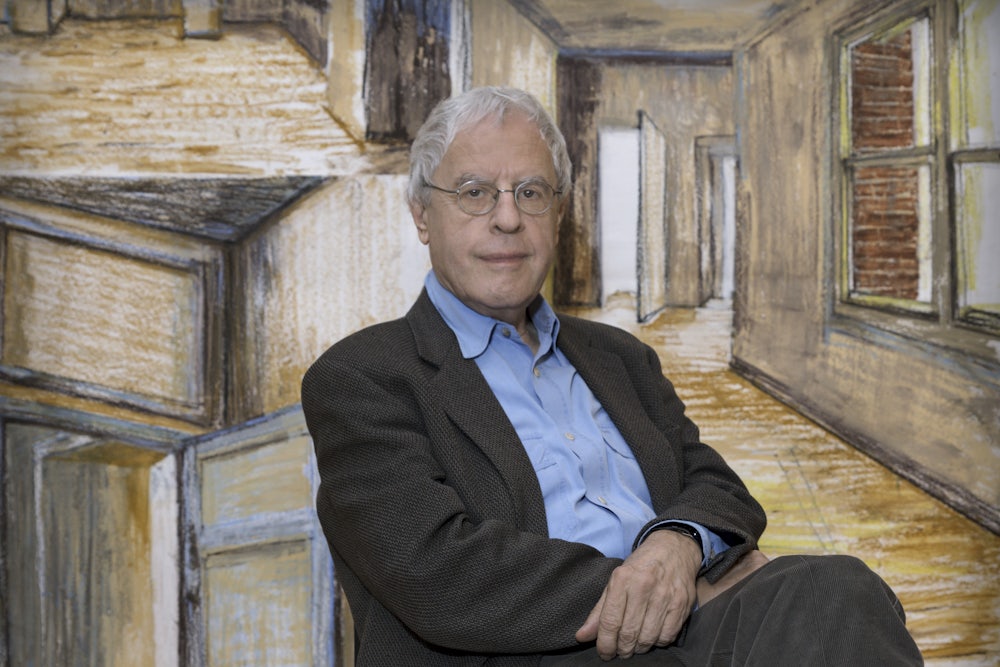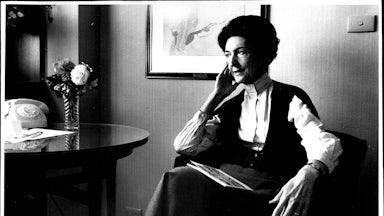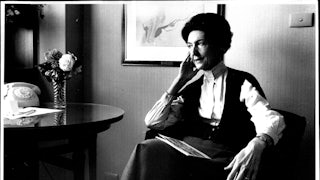When asked by the poet and critic Mark Ford for The Paris Review who the major poets of his era were, and for his thoughts on the state of contemporary poetry, Charles Simic refused to take the bait. Unlike Robert Lowell, who was known, unasked, to rank his contemporaries (Lowell was first, Berryman second, then came the rest), Simic always seemed to float bemusedly through his evergreen success. “Ask me in a hundred years,” he responded. This is the only reasonable response.
Despite that being the best answer, because as has been proven time and again, poets never know their era, it is worth noting that his answer is also an impossibility. We can safely assume Ford won’t be around in a hundred years. And we just lost Simic this past Monday in Dover, New Hampshire, at the age of 84.
The easy way out is to take Simic’s response to Ford as sarcasm; but it was not. That the most apt response from Simic is also the most impossible one to achieve is the principal key signature to Simic’s poems. He reveled in the light and shadow of that paradox: how it could offer hope and slowly unsheathe menace equally and often simultaneously.
Take for example, his poem “Today’s Menu,” which appeared in the September 13, 2012, issue of The New Republic.
Poem
All we got, mister,
Is an empty bowl and a spoon
For you to slurp
Great mouthfuls of nothing,
And make it sound like
A thick, dark soup you’re eating,
Steaming hot
Out of the empty bowl.
Simic’s work is often described as surreal, darkly humorous, minimalist, the work of an impassioned epicure. You see all of that on display here. The surrealism is the part of his work least understood (calling any sharp left turn of the imagination “surreal” is an American reflex). In Simic’s poems, what is surreal is the way the mind recognizes the influence of power on reality and creates an inner logic, publicly shared, that represents it so that it can in turn reject it. In “Today’s Menu,” there is the looming pall of emptiness: an empty bowl (stated twice), an empty spoon, an implied empty stomach, a one-item menu. The presence of the italicized word “Poem” looms over the poem, insisting on itself being there and yet having nothing to do with the speaker. The speaker certainly doesn’t say “Poem,” and neither person hears it. Poem looms over the scene loud, brazen, and uninvited, but life—complicated, monologic, tragic, and magical life—goes on.
To follow the verbs in the poem alone—to have, to slurp, to make, to sound like, to eat—is to listen to the heartbeat of the poem. Meanwhile, the poem’s structure hammers home a sense of relation: The first stanza is the thing, the second the thing imagined; and the second, third, and fourth lines of the respective stanzas are in correspondence: “Is an empty bowl and spoon” / “A thick, dark, soup you’re eating”; “For you to slurp”; “Steaming hot”; “Great mouthfuls of nothing”; “Out of the empty bowl.”
The opening line (“All we got, mister”) is akin the opening line of Robert Hayden’s poem “Those Winter Sundays” (“Sundays too my father got up early”) in that it contains an entire biography in it. The arc of the poem is straightforward: We don’t have anything, but if you imagine it, you can have it, and it may sustain you, but there’s nothing there. Simic’s choices, however, create a world in which this happens with nuance: We know this is happening today, which creates a past, which in turn creates a person; we know that the person who doesn’t speak is a man and can use some advice about how to do this thing he is being told, we know that the lines build bridges to each other across the white space of the two stanzas.
Likewise, Simic’s work over the six decades of writing poetry is itself a bridge by which readers of poetry have crossed time and again, back and forth, from feeling to fact, humor to tragedy, sense to senselessness, the most explicit of desires to the most implicit of desires, the possible to the impossible. I suspect that, like Yeats, Simic will be remembered as a bridge between centuries. And like Yeats, Simic continued strong in song well into his later years. Unlike Yeats, his soul never soured. He wrote about the twentieth and the twenty-first centuries less as someone with “something to say” and more as someone with real stakes in the past and the future. As in 2012 when, with prescient precision, he wrote the following in The New York Review of Books:
An educated, well-informed population, the kind that a functioning democracy requires, would be difficult to lie to, and could not be led by the nose by the various vested interests running amok in this country. Most of our politicians and their political advisers and lobbyists would find themselves unemployed, and so would the gasbags who pass themselves off as our opinion makers. Luckily for them, nothing so catastrophic, even though perfectly well-deserved and widely-welcome, has a remote chance of occurring any time soon.
He was born on 9 May, 1938.* His earliest memories, a bottomless well for his poems, are of a Belgrade steeped in the horrors of World War II and its aftermath. He lived to see whatever this is that we’re living through today. We’ll know it by name in a hundred years. And we’ll still be reading the poems of Charles Simic.
* This article originally misstated Simic’s birth year.




